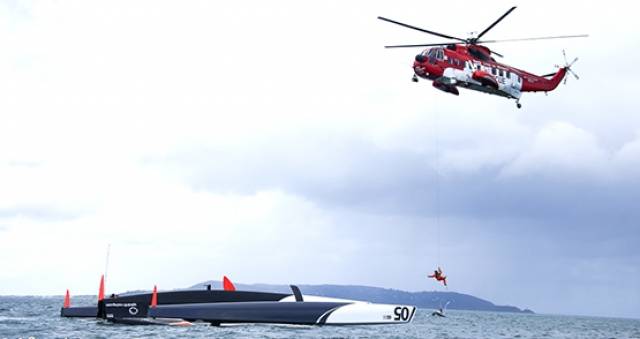It's now prime boating time in Ireland with long evenings and warm weather for enthusiasts to re–engage with their passion. It is timely that we share some thought-provoking facts in advance of this period of increased boating activity in the hope of cultivating safer on water behaviours amongst all recreational craft users writes Tom Nallen of insurers Allianz.
As our evenings lengthen and weather improves, boating enthusiasts are re-engaging with their passion. It is timely that we share some thought-provoking facts in advance of this period of increased boating activity in the hope of cultivating safer on water behaviours amongst all recreational craft users.
At Allianz Ireland, our claims statistics support what many already suspect; vessel operator error is the greatest cause of incidents. These include groundings and poor navigation due to inadequate crew training, resulting in collisions with other vessels or objects to name but a few. Over 50% of our claims involve vessel operator error of one kind or another resulting in personal injury, damage to the craft or other property. One can only surmise that many of the incidents are potentially avoidable.
Our customers in Ireland are not unique. Our international colleagues at Allianz Global Corporate Speciality, report losses attributable to vessel operator error that largely mirror our local experience.
The fatality figures linked to pleasure craft are particularly stark. Irish maritime fatality statistics indicate 49% of all marine fatalities are associated with recreational craft use. [1] The principal causes identified by the Marine Casualty Investigation Board are noted below in order of significance.
- Failure to plan journeys safely, including failure to take sea/weather conditions into account.
- Not wearing a personal flotation device (lifejacket/buoyancy aid).
- Lack of crew training.
- Unsuitable or inadequately maintained safety equipment on board, or lack thereof.
- Inadequate crewing levels/solo operation.
- Vessel unseaworthy, unstable and/or overloaded.
- Impairment due to fatigue or the influence of alcohol and/or drugs.
- Inadequate enforcement of regulations.
- Unsuitable clothing being worn on board.
In response to these factors we would suggest the following preventative tips
· Plan all voyages, even where they are short and familiar, taking the weather conditions into account. Ensure contingency plans are considered around items such as back up fuel supply, crew injury or indeed places where refuge may be taken should conditions deteriorate. Log a traffic report with the coast guard or let a responsible person ashore know your route, estimated time of departure and arrival, who is on board and what to do if that time of arrival lapses.
· Ensure that appropriate personal floatation devices are at hand as they can vary depending on the craft type. Check that it is correct in size and operationally fit for use. They should be frequently inspected for wear or tear least it impact their effectiveness. Replace if in any doubt.
· Not all pleasure craft require crew. Whether single handed or crew operated, those on board should be competent, know their role, be familiar with the craft, its equipment, its limitations and its safety equipment.
· All safety equipment (e.g. Fire fighting blanket, extinguisher etc.) should be fit for the craft & its intended purpose. They must be inspected, tested and maintained in line with the manufacturer’s guidance. If gas/LPG (Liquid Petroleum Gas) appliances are on board they should be serviced by an approved party. Should carbon monoxide alarms be present in accommodation areas they should be regularly tested. Basic items such as an operational torch should be considered.
At year end 2015, approximately 64% of all Irish Coast Guard call outs relating to vessels were linked to recreational craft use*. This amounted to 415 distress/emergency calls. In contrast to commercial vessels, there is a rising trend in incidents involving recreational craft, which can in part be attributed to prolonged periods of good weather coupled with an increasing amount of people participating in water based activities. Encouraging a culture that promotes responsible behaviour amongst pleasure craft users in their communities and organisations can go a long way to reduce incident levels.
The Irish Maritime Administration’s Code of Practice for the Safe Operation of Recreational Craft (refer to www.dttas.ie and www.safetyonthewater.ie) provides practical information and gives safety advice on best practice to operators and owners of recreational craft. At Allianz, we strongly recommend all pleasure craft owners and those operating pleasure craft at anytime of the year review the code of practice before taking to the water.
By Tom Nallen, Associate Director of Commercial Sales, Allianz p.l.c
Information correct as of June 2016
* Information sourced from Irish Coast Guard statistics
This article contains guidance notes on general boat safety, no liability is assumed by Allianz by reason of this guidance.
[1] Based on Marine Casualty investigation Board reports and Irish Coast Guard Annual Statistics, 2002-2013 combined.
More from Allianz on boat insurance and boat safety






























































